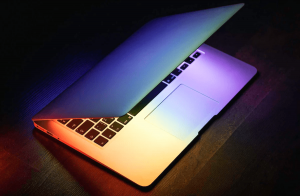Healthcare professionals have embraced technology to help improve service delivery and offer quality services to their patients. Of the many technologies available, health monitoring systems have taken center stage. These devices allow patients to take more control of their health and wellness.
Most of these devices use sensors and IoT technology to track physical activity and other health data. The real-time data collected by these devices allows individuals to play a starring role in improving their health and enables doctors and wellness experts to provide quality care.
Below are some of the top benefits of using wellness monitoring systems.
Quality Personalized Routines
Our bodies are all different, and one fitness or health regimen cannot work for everyone else. Real-time health tracking tools make it easier for wellness experts to curate routines and healthy diets for their patients. The experts can use the data from the monitoring system to learn more about the individual's wellness needs.
Healthcare providers can also use the data to tinker with health routines for better results. Through this, doctors and fitness trainers can adjust the regimen if there are no significant improvements in the patient's health.
Off-Site Monitoring
Real-time health monitoring systems make healthcare more accessible. This can be used for patients living in remote areas or those who cannot travel. Healthcare professionals can collect data from the monitoring device and offer medical help.
Regular monitoring also reduces the risk of hospitalization. Health issues can be detected early on and patients can get put on medication to reduce the risk of emergencies.
There is also the benefit of improved patient engagement. Both patients and healthcare providers play a crucial role in working towards a healthy future. Patients actively participate in their care by sharing real-time data and insights.
Preventative Wellness
Medicine is evolving towards preventative care. The goal is to identify health issues early and offer preventative solutions. Real-time health monitoring systems play a crucial role in detecting health issues early. Most monitoring devices, like this one built by Empeek, monitor vital signals like heart rate, blood pressure, and blood oxygen levels.
The devices can detect anomalies that may indicate underlying health issues. Doctors can use the data to curate exercise and diet plans to help reduce the risk of serious health complications and improve overall outcomes.
Improved Overall Wellness Levels
Tracking vital signals like heart rate, sleeping patterns, and blood sugar levels can help people identify issues and work towards correcting them. For example, the device can notify you about your sleeping patterns and offer insights on how to correct the issue for better quality sleep.
Some health-tracking devices use AI to encourage and motivate people to stay active and meet their fitness goals. These subtle messages have a lasting effect and help people going through tough challenges, like weight loss programs, to stay on course.
Summing Up
As technology continues to advance, the future of health monitoring systems holds immense promise. The integration of AI and machine learning models will also enhance data analysis and predictive capabilities.






